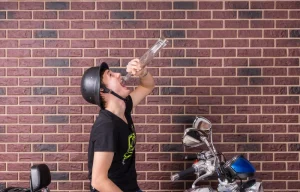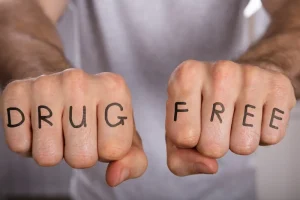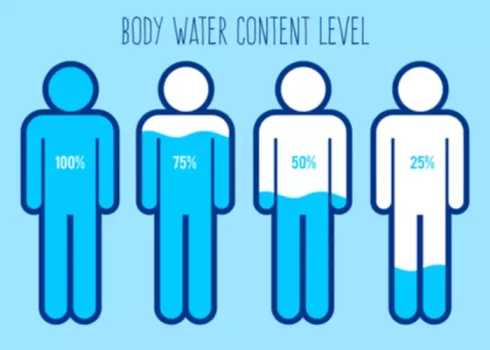
Sleep is essential for shoring up impulse control and fostering good decision-making. Another vital element of care during recovery is relapse prevention—learning specific strategies for dealing with cravings, stress, setbacks, difficult situations, and other predictable challenges. Recovery involves rebuilding a life— returning to wellness and becoming a functioning member of society. Every person needs a comprehensive recovery plan that addresses educational needs, job skills, social relationships, and mental and physical health. Therapy may be critical to resolving underlying problems that made escape into substance use so appealing in the first place.
How Long Does it Take to Get Over an Addiction?

The afternoon is also an excellent time to review things you’ve learned in these sessions to better understand and apply them to your recovery journey. There is often a group session following breakfast led by a counselor or therapist that focuses on topics related to the treatment process, the 12-step program, addiction, and recovery. A significant focus during treatment is on achieving clarity about the issues, people, and surroundings in your life that have resulted in substance use becoming your primary strategy to cope with discomfort or stress. However, even if someone is ready and available to enter long-term rehab, there’s no guarantee that they’ll be able to find space in the program of their choice. For people suffering from a substance use disorder, the most important thing is to get the help they need.
Addiction Therapies
- If you’re on a medication-assistedtreatment regimen for an opioid use disorder, you may receive methadone or buprenorphine during outpatient detox.
- 60-day programs have the benefit of added time and support throughout treatment.
- Research and clinical experience have identified a number of factors that promote recovery.
- People in inpatient programs often undergo long-term treatment for relapse prevention.
Once you decide to seek help, the specialists at your rehab facility will diagnose your substance abuse problem. Depending on the specific addiction, treatment professionals will establish a blueprint for your rehab program. Long-term rehab programs can offer many benefits to people who want to achieve sobriety and maintain long-term recovery.
How can I find help for substance use and co-occurring mental disorders?
- By knowing triggers early, individuals can develop coping skills to handle them in healthier ways.
- To make sure that these symptoms aren’t too severe, there’s a good chance that small amounts of medications will be used to manage symptoms and help you avoid relapse.
- Most addiction treatment centers follow a continuum of care as recommended by trained behavioral health specialists.
- It involves safely managing the physical symptoms of withdrawal that occur when an individual stops using substances.
In comparison, short-term treatment programs last around three to six weeks. Keep in mind that inpatient rehab facilities provide clients with non-hospital settings while delivering care on a 24/7 basis. Treatment can focus on the social factors and psychological factors of a substance use disorder. During these programs, one gets over the physical effects of addiction through detoxification. After detox and inpatient care, the relapse prevention program is introduced to enable the individual to properly integrate into society.

Individuals can better manage their emotions and avoid relapse by identifying triggers and developing healthier responses. Learning to manage stress and emotions without resorting to substance use is a critical aspect of recovery. Developing effective coping skills can help https://ecosoberhouse.com/ individuals navigate the challenges of everyday life and reduce the risk of relapse. This treatment focuses on teaching skills to recognize triggers like stress or thoughts. By knowing triggers early, individuals can develop coping skills to handle them in healthier ways.
During the 30-day rehab time, the therapy consisting of physical and mental care is strategically aligned to help the individual heal. Generally, addiction treatment should not be rushed as recovery is a long-term process. Long-term inpatient treatment tends to be a good option for people who have struggled with addiction for extended periods of time and have not been able to maintain sobriety after previous treatment programs. There are different types of outpatient treatment programs you can enter. These programs are often available for people who don’t have severe substance use disorders or for individuals who have already completed a drug rehab program in an inpatient facility. CBT is offered in most residential treatment programs and is effective for aiding in the recovery from substance use disorders.
What Are the Symptoms of Pain and High Blood Pressure?

On the other hand, when chronic pain occurs, there are continuous elevations that weaken the body’s ability to normalize blood pressure. This can lead to more pain, hypertension, and the risk of heart disease. Pain is a response from the involuntary nervous system used to protect the body from harm. No matter what type of pain occurs, the nervous system uses the same mechanisms how long is drug rehab to relieve it. Still, the hope is that her brain-imaging studies will bear fruit that leads to a better understanding of long COVID and new treatment methods. In 2022, a Yale study by Arman Fesharaki-Zadeh, MD, PhD, found promise in treating brain fog through a combination supplement of NAC and guanfacine — the latter developed by Yale neuroscientist, Amy Arnsten, PhD.
Drugs and Alcohol Recovery Timelines
People who attend outpatient treatment can live at home during the recovery process, making maintaining certain responsibilities possible. These programs are generally considered to be less intensive than inpatient treatment programs. Different treatment facilities utilize different approaches throughout the course of a 60-day stay in drug rehab. Medication, individual treatment, counseling for families, and social therapy are often used in conjunction with one another while the precise mix depends on the unique circumstances and requirements of each client. Twelve-step programs are an alternative treatment option that is often available in certain 60-day drug rehab programs.
Paxlovid, Vitamin Supplements Show Promise With Long COVID
I met a lot of great people and learned how to change my old behaviors on a daily basis. When researching which rehab options, consult your insurance provider to find out what kind of coverage is available. Get professional help from an online addiction and mental health counselor from BetterHelp.
- These facilities provide24/7 monitoring and are able to address complications of withdrawal immediately if they occur.
- People who have been using drugs for years usually require more intensivetreatment than people who have been addicted for a few months.
- Our relapse prevention therapy program empowers you with the strategies and skills to maintain sobriety and navigate daily challenges.
- Self-medicating with substances, like drinking or taking drugs to treat symptoms of anxiety or depression, is another reason to consider rehab.
- Clients who spend a short amount of time in drug rehab often benefit from continuing their therapy in an outpatient environment.
